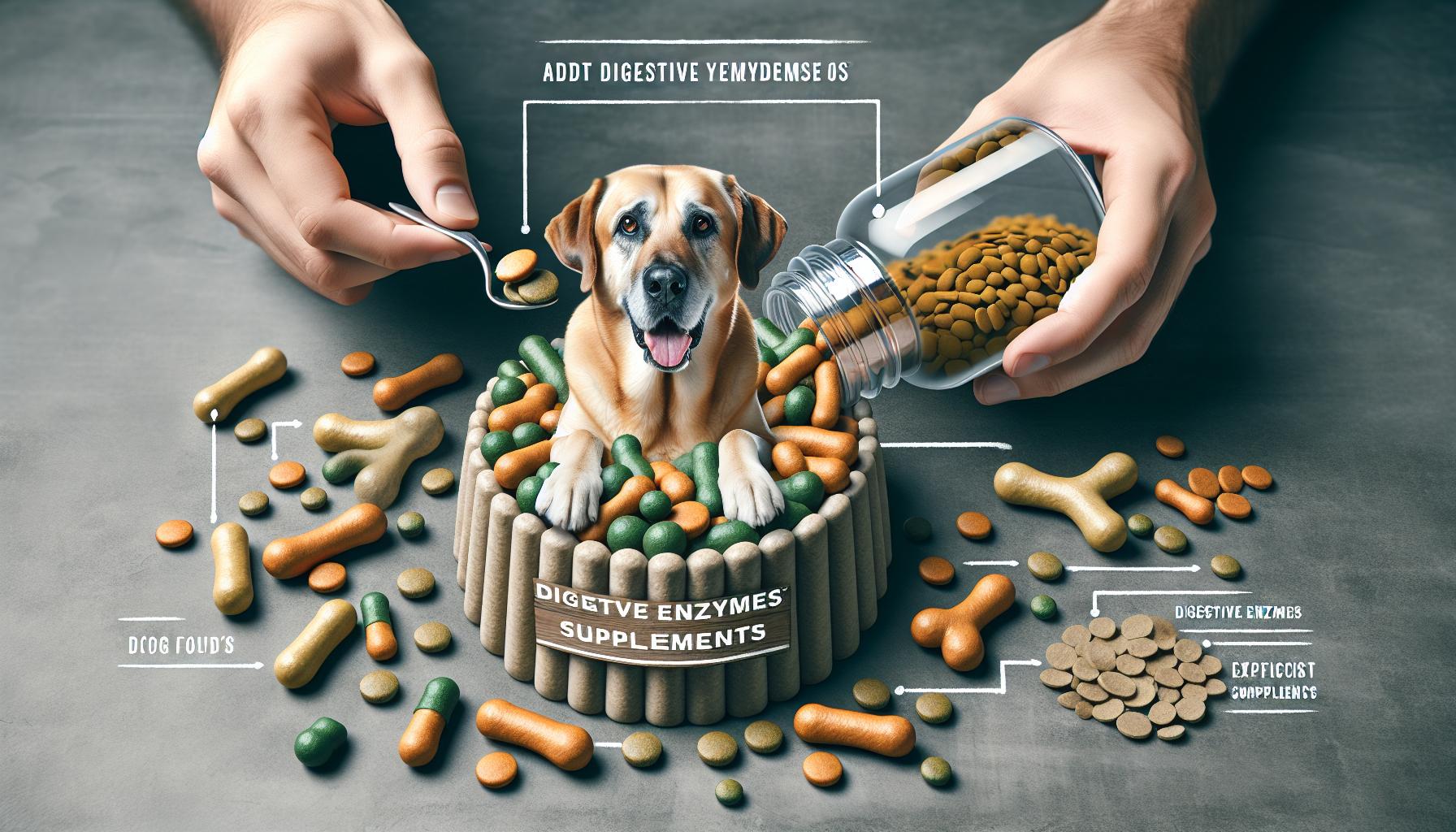
Introduction
When its time to feed your lovable canine friend, are you often left pondering about additives like digestive enzymes? Does the thought of ’how to add digestive enzymes to dog food’ keep you awake at night? Well, rest your weary mind, because you’ve landed at the right place. Digestive enzymes facilitate the process of digestion in your pet by breaking down food and enhancing nutrient absorption. Before we jump into the nitty-gritty of how to include these valuable enzymes in your dog’s diet, let’s brush up on the basics – what they are, why they’re important, and the health benefits they bring to the table. Or rather, the dog bowl!
The Inside Scoop on Digestive Enzymes
Digestive enzymes are proteins that catalyze the breakdown of food into nutrients. Dogs have these naturally within their bodies, and they’re reinstated in their diet when they consume raw meat. However, the reality is that many dogs are currently consuming processed or cooked food that may lack these essential enzymes. As such, you might need to make a conscious effort to supplement your dog’s meals with these detoxifying dynamos.
Why Add Digestive Enzymes To Dog Food?
If we bypass the euphemism, considering ’leftovers’ as ’dog food’ is the quintessential dog owner’s trick. But when you do that, remember, your dog might not be getting all the nutrients they need. That’s when digestive enzymes act as the knight in shining armor, helping unlock nutrients from food and taking edges off gastrointestinal issues like bloating, flatulence, and irregular stools.
How to Supplement Digestive Enzymes
Now, let’s get down to brass tacks. How do you introduce these digestive catalysts into your dog’s diet? You can either opt for enzyme-rich natural food, synthetic enzyme supplements, or take the middle path of combining both.
Natural Sources of Digestive Enzymes for Dogs
Try the natural route, if it gets your tail wagging. Introduce your dog to a raw food diet, including enzyme-loaded foods like pineapples, papaya, and raw meat. However, be cautious as raw food carries its share of risks, including allergies and bacterial infections.
Enzyme Supplements
Supplements are another route to consider. They serve as a one-stop shop for the necessary enzymes. Available in powder, liquid, and capsule formats, they can be seamlessly integrated into your dog’s diet. But always remember to consult with your vet before initiating any supplements.
Combining Natural Foods and Supplements
This approach of balancing natural foods and supplements is often the most recommended, as it covers all the bases. It provides the benefits of raw food while also ensuring a consistent supply of enzymes via supplements. So, your dog enjoys the best of both worlds.
Conclusion
In conclusion, adding digestive enzymes to your dog’s food shouldn’t be a daunting task. Whether you go natural, select supplements, or follow the balanced approach, the key is ensuring they receive a regular intake of these crucial proteins. Always remember, a pup whose tummy is in tip-top shape, is a happy pup indeed!
Frequently Asked Questions
1. What are the signs that my dog needs digestive enzymes?
The common signs include frequent vomiting, excessive gas, and changes in stool. If you notice these symptoms consistently, consult your vet to discuss including digestive enzymes in your dog’s diet.
2. Can I provide human digestive enzymes to my dog?
It’s not recommended. While both humans and dogs have similar digestive enzymes, the amount and the specific types required can vary significantly.
3. How long does it take for dogs to respond to digestive enzymes?
Usually, it takes about a few days to a week. However, this may differ based on the dog’s overall health and the severity of their digestive issue.
4. Are there any side effects of digestive enzymes in dogs?
Some dogs may experience a slight change in stool consistency initially. However, if unusual symptoms persist, it’s essential to consult your vet.
5. How much enzyme supplement should I add to my dog’s food?
The dosage depends on the type of enzyme, the dog’s weight, age, and overall health. Always follow the manufacturer’s instructions and consult with your vet to determine the correct quantity.

